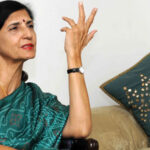THE global power architecture in 2017 may see a significant evolution. Three things will trigger this evolution: entry of Donald Trump in the White House, increasing cooperation between Russia and Japan and the growing European disenchantment with multiculturalism-a post-WWII ism that facilitated the flow of migrant workers from Muslim North Africa and West Asia into Europe and America for industrial reconstruction of war-ravaged Europe.
Even before being elected, Trump had indicated that he would reset the USA relationship with the Russian Federation. A more than a decade of mutual meddling in Ukraine, which acts as a buffer between the European Union (EU) and Russia, has badly soured the US-Russia relationship.
In 2014, in retaliation for the US-EU backing of pro-Western Ukraine government, Russia occupied Crimea and has since been targeting vital US interests, including allegedly interfering with its presidential election.
The relationship has deteriorated so much that in the last week of December, the outgoing administration of US President Barack Obama announced a new series of punitive measures against Russia in retaliation for allegedly hacking to reshape the 2016 US presidential elections. Washington placed sanctions on five Russian individuals and four Russian entities, including the two primary security services the Federal Security Service (FSB) and the Main Military Directorate (GRU). The US also ejected 35 Russians from its soil. This move was backed by a fairly united Congress despite it being an executive decision.
The measures do not directly impact Russian interests as Moscow can shift assets and tactics to target the US. Instead, it is intended to signal publicly that the US will not tolerate overt interference in its internal affairs. Moscow is seen trying to delegitimise the outgoing US administration and increase pressure on President-elect Donald Trump. Moscow intimated it would retaliate against US sanctions and ejections with similar moves. However, in a classic Russian move, President Vladimir Putin announced on December 30 that he would not respond until Trump entered the office.
Trump’s entry will also define the way Russia and Japan negotiate their way to a formal peace treaty that has not been signed between the two countries ever since the end of WWII. The dispute over what Russia calls the southern Kurile Islands and Japan calls the Northern Territories has prevented Japan and Russia from signing a peace treaty ending World War II.
In the absence of a formal peace treaty, the two nations are technically still at war. Nevertheless, geo-political compulsion of containing an aggressive China, that covertly eyes to usurp Siberia from Russia some day and which lays claim to some of the Japanese islands in East Pacific, apart from claiming rights over the whole of South China Sea (SCS), is increasingly setting Moscow and Tokyo into a path of full-fledged economic cooperation.
On December 16, Putin and Prime Minister Shinzo Abe of Japan held a joint press conference in Tokyo on the conclusion of the former’s two-day visit to Japan and committed to continue further talks on economic cooperation and a territory dispute. “We should not be bound by past negotiations,” Abe said at the joint news conference at which he repeatedly referred to Putin by his first name, striking an unusual note in formal Japan. “It is necessary to draw a new blueprint for the four northern islands in which Japanese and Russian people can live together and build a win-win relationship.”
The unsigned peace treaty, Putin added, “is a negative legacy from the past.” With Abe’s proposals for joint economic development on the four islands, he said, “we were able to deepen our mutual trust before we sign a peace treaty.”
The upshot of the meeting was the setting up of an investment fund for projects in Russia of 100 billion yen, about $845 million, by the Russian Direct Investment Fund and the Japan Bank for International Cooperation, which is controlled by the Japanese government.
Even as he seeks out Japan’s superior technology and fund for the development of Eastern Russia, Putin is keeping his cards close to his chest in an apparent attempt at not annoying China. Moscow and Beijing need each other to balance the US and its allies. In the past, Washington exploited Beijing’s fears to pitch it against Russia.Putin’s tardy arrival in Tokyo and refusal to accept an Akita dog gift might have upset his Japanese host, but they might have been as well meant more for signaling to China that he isn’t upstaging them-not yet.
While the optics of Putin-Abe meeting might not have impressed the Japanese or the Russians, the fact that they have initiated measures to step up their cooperation paves the way for the future course of action, which, in large measure, would depend on Trump’s East Asia policy.
TRUMP would also set the course of migration from West Asia into Europe and America. By simply resorting to the strong vetting of migrants from Muslim Asia and Africa, he would signal to Europe what needs to be done to cope with the increasing incidence of Islamist obscenity on the European soil. May it be noted that Europe, following the Berlin truck ramming in the middle of December that killed more than a dozen and wounded over a hundred, has for the first time in history not been able to celebrate Christmas and New Year they did for centuries. Indeed, Europe is increasingly turning sick at its own multiculturalism and secularism which are only fueling the crisis caused by an acute slowdown in economic activities.
The migrant policy of the West will define its future relationship with the Arab world. Despite political and ideological differences with Islamist Arab theocracies and monarchies, the West have preferred cohabitation over confrontation so far. But all of this may change in New Year as countries from Germany to France to Netherlands veer to the right of the political spectrum and unleash a new wave of power equations in the world.












































